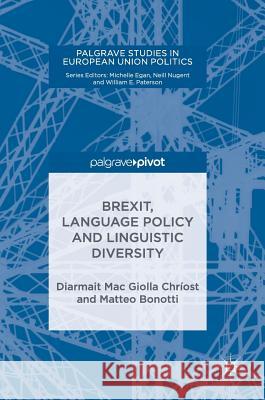Brexit, Language Policy and Linguistic Diversity » książka
topmenu
Brexit, Language Policy and Linguistic Diversity
ISBN-13: 9783319787251 / Angielski / Twarda / 2018 / 84 str.
Kategorie BISAC:
Wydawca:
Palgrave Pivot
Seria wydawnicza:
Język:
Angielski
ISBN-13:
9783319787251
Rok wydania:
2018
Wydanie:
2018
Ilość stron:
84
Waga:
0.26 kg
Wymiary:
21.7 x 15.5 x 1.3
Oprawa:
Twarda
Wolumenów:
01
Dodatkowe informacje:
Wydanie ilustrowane











